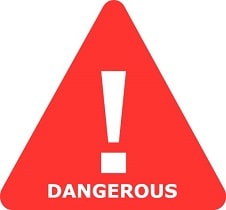Is EINECS 283-885-8 Safe in Breastfeeding
Question
I am a breastfeeding mother and i want to know if it is safe to use EINECS 283-885-8? Is EINECS 283-885-8 safe for nursing mother and child? Does EINECS 283-885-8 extracts into breast milk? Does EINECS 283-885-8 has any long term or short term side effects on infants? Can EINECS 283-885-8 influence milk supply or can EINECS 283-885-8 decrease milk supply in lactating mothers?
EINECS 283-885-8 lactation summary

- DrLact safety Score for EINECS 283-885-8 is 7 out of 8 which is considered Dangerous as per our analyses.
- A safety Score of 7 indicates that usage of EINECS 283-885-8 may cause toxic or severe side effects in breastfed baby.
- Our study of different scientific research indicates that EINECS 283-885-8 may cause moderate to high side effects or may affect milk supply in lactating mother.
- Our suggestion is to use safer alternate options rather than using EINECS 283-885-8 .
- Usage of EINECS 283-885-8 is in contradiction to breastfeeding hence if it is must to use EINECS 283-885-8 and there is no better alternative available then breastfeeding shall be stopped permanently or temporarily.
- Score calculated using the DrLact safety Version 1.2 model, this score ranges from 0 to 8 and measures overall safety of drug in lactation. Scores are primarily calculated using publicly available case studies, research papers, other scientific journals and publically available data.
Answer by Dr. Ru: About EINECS 283-885-8 usage in lactation
A parasitic fungus from the ear of some cereals, particularly rye, which since ancient times has caused epidemics of a serious disease, ergotism (Florea 2017, Belser 2013, Lee 2009). It has a complex composition, highlighting the ergoline alkaloids: lysergic acid amides such as ergometrine and ergopeptines such as ergotamine and ergotoxine (Florea 2017, Hulvová 2013) that act on adrenergic, dopaminergic and serotonergic receptors. Since the last update, we have not found published data on its excretion in breast milk. Ergot alkaloids have oxytocic, vasoconstrictive and lactation-inhibiting effects by inhibiting prolactin, among many others (Florea 2017, Hulvová 2013, Lee 2010, Lee 2009). Indications from the German Ministry of Health’s Commission E: none. Due to its serious adverse reactions and toxicity, natural alkaloids are not used in therapy, and there are recommendations for their withdrawal from sale (EMA 2014). At present, semisynthetic derivatives such as methylergometrine, dihydroergotamine, dihydroergocristine, bromocriptine and lisuride are used, among others. See below the information of these related products:
Alternate Drugs for Phytotherapy, Systemic Use
Chasteberry(Unsafe)
Chamomile(Safe)
Echinacea(Low Risk)
Alfalfa(Unsafe)
Dong Quai(Low Risk)
Cranberry(Safe)
Licorice(Unsafe)
Rhubarb(Low Risk)
Lavender(Low Risk)
Sweet Briar(Safe)
Barberry(Dangerous)
Carob(Safe)
Common Poppy(Unsafe)
Angelica(Unsafe)
Star Anise(Dangerous)
Mugwort(Unsafe)
Edible Burdock(Low Risk)
Box(Unsafe)
Boldo(Unsafe)
Bromelains(Safe)
Calaguala(Safe)
Caralluma(Low Risk)
Carrageen(Low Risk)
Horse Chestnut(Safe)
Blue-Cohosh(Dangerous)
Indian Pennywort(Safe)
Squisandra(Low Risk)
Prickly Pear(Safe)
Black-Cohosh(Unsafe)
Horsetail(Unsafe)
Colocynth Pulp(Dangerous)
Ergot Fungus(Dangerous)
Ephedra(Unsafe)
Steviol(Safe)
Eucalyptus(Unsafe)
Eyebright(Safe)
Flowers(Low Risk)
Fucus(Unsafe)
Goat´s Rue(Unsafe)
Bearberry(Unsafe)
Guarana(Low Risk)
Devil’s Claw Root(Low Risk)
Herniary(Low Risk)
St. John´s Wort(Safe)
Hyssop(Unsafe)
Syrup Of Ipecac(Low Risk)
Jin Bu Huan(Dangerous)
Kava Kava(Dangerous)
Clubmoss(Unsafe)
Maca(Safe)
Common gromwell(Unsafe)
Nux Vomica(Dangerous)
White Nettle(Safe)
Papain(Low Risk)
Passion Flower(Low Risk)
African Cherry(Dangerous)
Scots Pine(Unsafe)
Pycnogenol(Safe)
Pennyroyal(Unsafe)
Primrose(Safe)
Radish(Safe)
Ironwort(Low Risk)
Liquorice(Unsafe)
Rooibos(Safe)
Rose Hip(Safe)
French rose(Safe)
Butcher´s Broom(Safe)
Willow(Safe)
Soy(Low Risk)
Herbal Teas(Low Risk)
Rock Tea(Low Risk)
Lime Flower(Safe)
Tormentil(Safe)
Meadow-Sweet(Low Risk)
Golden Rod(Safe)
Sarsaparilla(Low Risk)
Sweet Flag(Unsafe)
Saw palmetto(Low Risk)
Common gum cistus(Low Risk)
Cat's Claw(Low Risk)
Milk Vetch(Low Risk)
Chinese angelica(Low Risk)
White Mulberry(Low Risk)
Di Huang(Low Risk)
Zi Wan(Unsafe)
Dang Shen(Low Risk)
Reishi(Low Risk)
glycyrrhizic acid(Unsafe)
Glycyrrhizin(Unsafe)
American cranberry(Safe)
Carrageenan(Low Risk)
Carrageenin(Low Risk)
Verbena officinalis(Low Risk)
Passion Vine(Low Risk)
Chaste Tree(Unsafe)
Sweet Cane(Unsafe)
Sweet root(Unsafe)
Irish Moss(Low Risk)
Bromelain(Safe)
Bromelin(Safe)
Acorus calamus(Unsafe)
